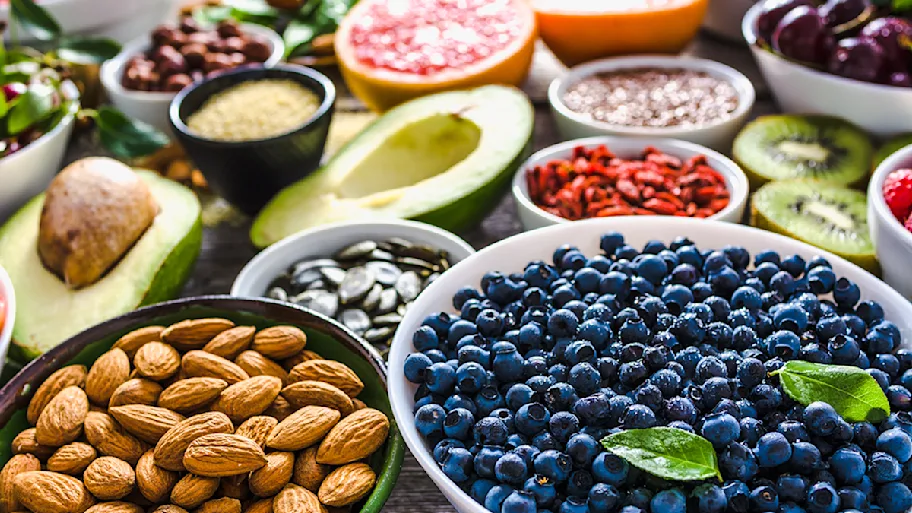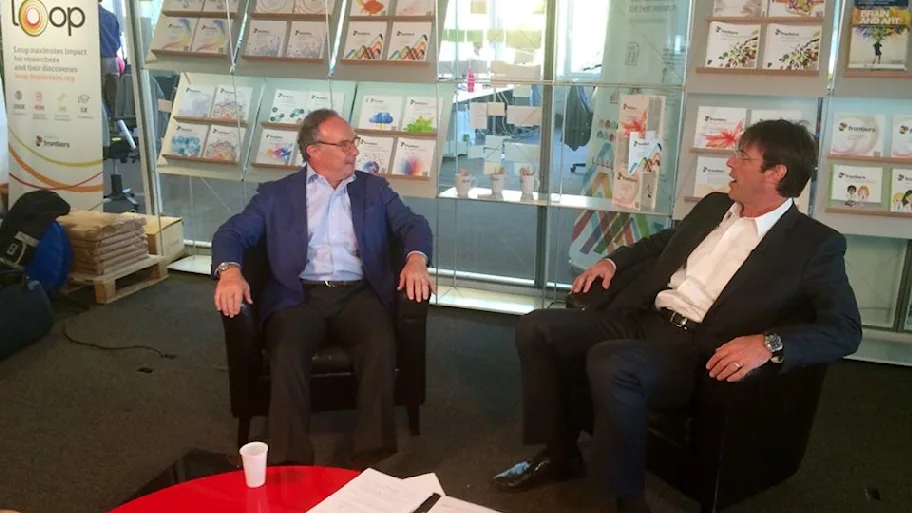
- Science News
- Health
- Advancing taste research to help solve global nutrition problems
Advancing taste research to help solve global nutrition problems
Frontiers Science Hero: Johannes le Coutre from Frontiers on Vimeo.
Dr. Johannes le Coutre first became involved and interested in the field of nutrition when he began researching as a student. “I started my PhD almost 25 years ago in what was called the Max Planck Institute for Nutrition Physiology in Germany. At the time I was only peripherally involved with nutrition, working on molecular photosynthetic mechanisms. I was trying to answer questions such as how an external stimulus is impacting the physiology in the interior of the cell,” he said.
Dr. Johannes le Coutre is a Senior Research Scientist and the Head of Perception Physiology at the Nestlé Research Center, in Lausanne, Switzerland. Since 2000, he’s been responsible for a research team interested in the physiology of taste linked to nutrition. “We started to build up an activity that got bigger and bigger. It revolved around the understanding of taste on the tongue and subsequently how taste perception is integrated in the brain,” he said.
In addition, his research looks at what the perception of certain tastes does to the physiology of our bodies.
Looking at the connection between nutrition and taste
When thinking about taste, people often do not necessarily associate it with the term “nutrition”, which implies food components and substance in relation to health or diseases. “But taste is related to nutrition. We eat what we like and we like what tastes good,” le Coutre said.
Over the past decade his team not only began to understand the molecular signaling underlying taste physiology on the tongue, but identified the receptors for the five classic taste modalities of salty, sweet, bitter, sour and umami. More interestingly is that those receptors where not only identified on the tongue, but in other tissues of the body as well. “Our group and others identified those taste receptors to be expressed almost anywhere else in the body,” he said.
Le Coutre’s group discovered that our gut has taste receptors as well, which he believes may possibly have implications for the understanding of diabetes and obesity in the future. “We talk about gut tasting these days,” explained le Coutre. “You start to wonder about the role of taste receptors in the gut and how those receptors on the tongue and in the gut are transmitting their signals, and how these signals are integrated in the brain. You also wonder how it differs from the signals received by the taste receptors found elsewhere in the body,” he said.
“The world population is suffering to a significant extent from an obesity epidemic,” said le Coutre when asked about the impact of nutrition on entire cultures. The research he and his group conduct in nutrition is essential because of the set of challenges we are continuing to face in a densely populated world. “Many people in emerging, but also in developed countries, suffer from being overweight. We are beginning to understand that food — specific food and food in general – does have a positive impact on health if it is managed well and if you eat the right food,” he said.
Globalization impacting nutrition
Scientists work in their field of expertise because a certain fascination drives them, and with le Coutre, it’s all about taste. He says taste receptors have been discovered and sequenced by various groups mainly in the U.S., but the difference is that now we are beginning to understand entire signal transduction chains from the outside world and how their integration with other parameters in our body eventually results in behavior.
This advancement of research urged the topic of food science and nutrition in general to become a more discussed matter around the world among researchers, health professionals and even world leaders. Globalization, as le Coutre identifies, is one of the reasons for the increased conversation about nutrition as it affects every person on this planet.
“I believe the more you talk about certain things, the more you get people to become aware of them. There are more cooking shows on television, cooking magazines and other media available; there is a lot of communication about food and nutrition in the internet. Globalization is the underlying driver that merges all of this awareness across the world,” le Coutre said.
He further added that due to his discoveries and experiments, he has changed the way he tastes and eats. With what he has learned over the years, he now pays more attention to having as little salt as possible. “Salt not only enhances taste,” he said, “but it also covers up taste. You would be surprised to see what tastes come out if you do not put any salt on your dish or if you do not sprinkle any salt before you even taste the first bite.”
The future of nutrition research
Many people are aware of the obesity and diabetes epidemics, yet it is less known that almost all countries are also dealing with malnutrition. A general goal behind the recent surge in nutrition research is to improve the world`s living standards in the future.
“When it comes to hunger and third world countries, we are talking about the need for policy developments and with Frontiers in Nutrition we are trying to address this. We have to drive the right policies to enable people to have food and that is something which goes beyond molecular science. The idea and aim is to bring a sufficient amount of calories, proteins, macronutrients, micronutrients into every part of the world,” he said.
In his mission statement for Frontiers in Nutrition, le Coutre stated that the ultimate goal with the publication of rigorous scientific research is to achieve a visible impact on the global nutrition agenda addressing the grand challenges of our time, including obesity, malnutrition, hunger, sustainability and consumer health.
Related links:
Grand Challenges in Nutrition (2014).
Johannes le Coutre and his work have received media coverage from BBC News, Daily Mail, Huffington Post UK, El Financiero, Het Laatste Nieuws and la Repubblica.






